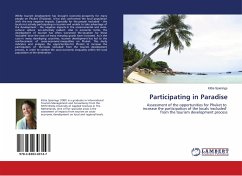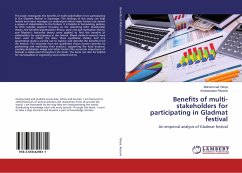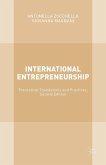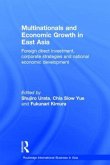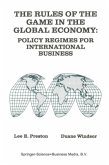Whilst tourism development has brought economic prosperity for many people on Phuket (Thailand), it has also confronted the local population with the very negative impacts. Especially for the people 'excluded' - the locals not actively participating in tourism and unable to take advantage of the development - the negative impacts in the environmental and socio-cultural sphere are extremely evident. Also in economic terms, the development of tourism has often worsened the situation for these 'excluded' since the costs of many everyday goods have increased. As is the case in many developing countries, tourism development has led to the reinforcement of socio-economic inequalities on Phuket. This study indicates and analyses the opportunities for Phuket to increase the participation of the locals 'excluded' from the tourism development process, in order to combat the socio-economic inequality within the local population at the destination.
Bitte wählen Sie Ihr Anliegen aus.
Rechnungen
Retourenschein anfordern
Bestellstatus
Storno

